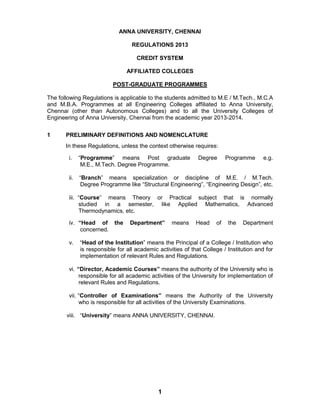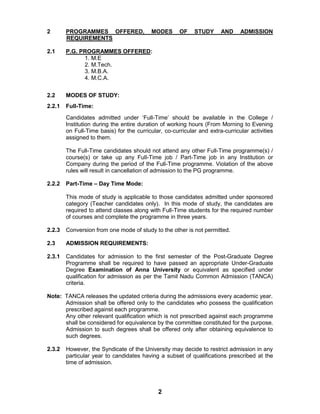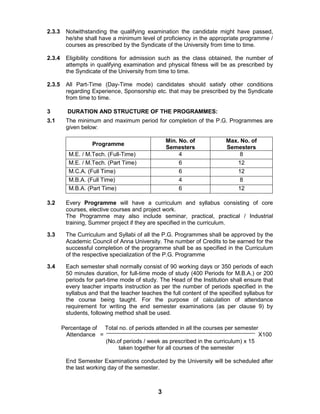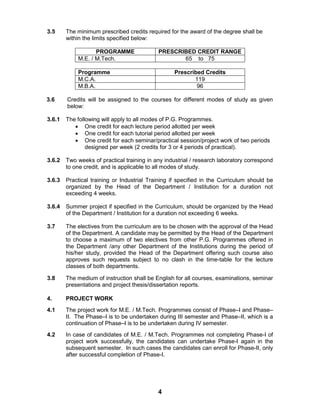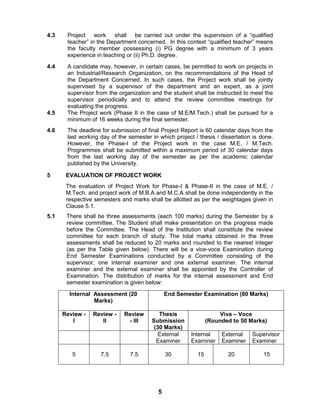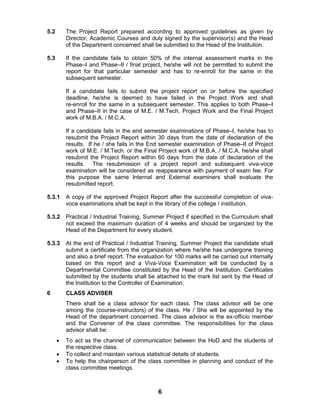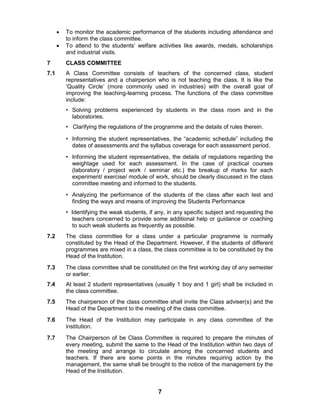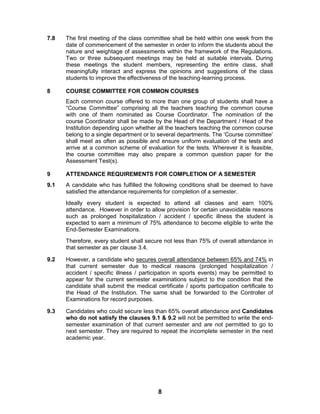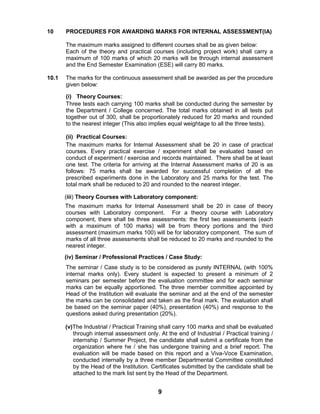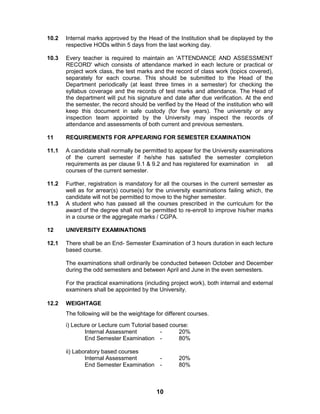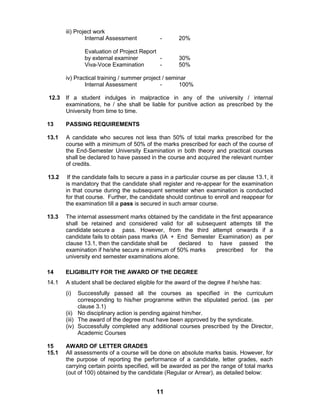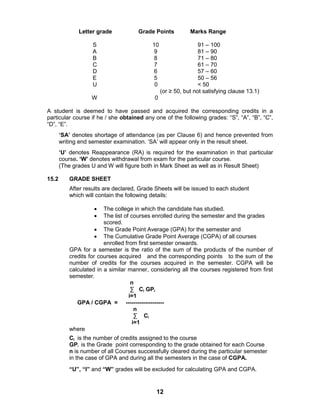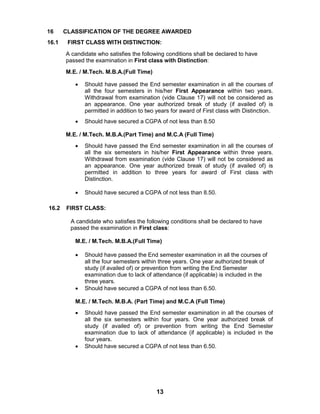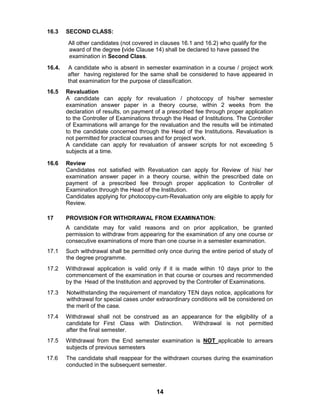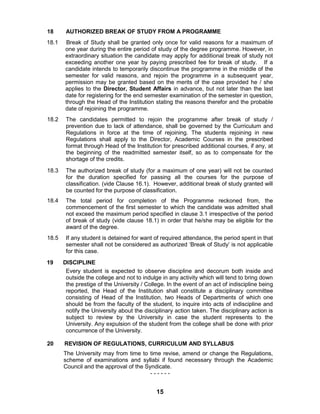The document outlines regulations for post-graduate programs at Anna University in Chennai, India. It defines key terms, lists the programs offered and admission requirements. Programs include M.E., M.Tech., M.B.A., and M.C.A. and can be full-time or part-time. The duration is a minimum of 4 semesters for full-time and 6 semesters part-time. Students must earn 65-75 credits including core courses, electives, and a project. Project work is evaluated over two phases and must be supervised by qualified faculty.
